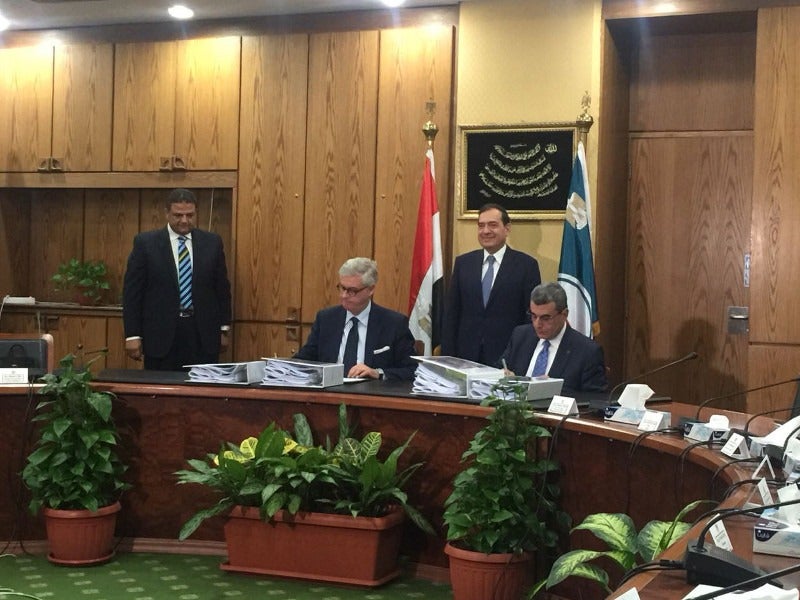The Middle East oil refinery (MIDOR) located in Alexandria, Egypt, is currently undergoing an expansion to increase the refining capacity by 60%.
Estimated to cost $2.3bn, the expansion project will increase the total production from the current 100,000 barrels per day (bpd) to 160,000bpd of refined product. It is expected to increase the middle distillate yield as well as meet the domestic requirement for Euro V grade fuel, upon the start of operations in 2022.
MIDOR, a shareholding company, is the refinery owner and operator. Egyptian General Petroleum Corporation (EGPC) holds 78% interest in MIDOR, while ENPPI, PETROJET, and Suez Canal Bank hold 10%, 10%, and 2% respectively.
Middle East oil refinery details and make-up
Classified as a deep conversion refinery, MIDOR extends in approximately 500 acres land within the Amerya Free Zone, near Alexandria.
The refinery commenced operations in October 2000 and achieved the first shipment of diesel and gasoline in February 2001 and April 2001, respectively.
MIDOR refines both local as well as imported crudes and mixes and blends them using systems of linear programming to maximize economic benefit. It employs unique deep conversion techniques to convert heavy crude into high-quality light and middle distillate products.
The refinery comprises a UOP-licensed naphtha hydrotreater and naphtha splitter unit, each with a capacity of 32,400bpd. Other units include the catalytic reforming unit, isomerization unit, kerosene (merox) unit, distillate hydrotreater, hydrocracker, and liquefied petroleum gas (LPG) treatment unit.
Final products from MIDOR will be transported to the El Dekheila Port in Alexandria through a product pipeline.
Middle East oil refinery expansion details
The expansion project is a part of Egypt’s Ministry of Petroleum and Mineral Resources’ plan to upgrade the country’s existing oil refineries with a view to reduce imports.
The first phase of expansion has added the Preflash tower within the current crude oil distillation unit/vacuum distillation unit (CDU/VDU) resulting in increase of the refining capacity to 115,000bpd.
The current expansion aims at increasing the overall production capacity and includes the construction of a new crude and vacuum distillation unit, a diesel hydrotreater, solvent deasphalting, and a hydrogen unit.
It will also expand the existing naphtha hydrotreater unit, naphtha splitter unit, isomerization unit, hydrocracker unit, LPG treatment & recovery unit, and sulphur plant.
The existing diesel hydrotreater unit will be converted into a kerosene unit to process crude, while modifications will be made to all utility units, auxiliary units, and refinery tanks to support the expansion.
The project is expected to produce an additional 280,000 million tonnes (Mt) of LPG, 1.6Mt of high-octane gasoline, 2.2Mt of jet fuel, and 2.8Mt of diesel in accordance with international Euro V specifications. It is equivalent to an increase of 107% in LPG production, 60% high octane gasoline, 145% jet fuel, and 45% diesel from the current production.
The project will also produce 0.57Mt and 0.14Mt of coke and sulphur, respectively.
Financing of Middle East oil refinery expansion
MIDOR received a $1.2bn loan facility for the expansion project from a consortium of international banks including CDP Bank, Credit Agricole Bank, and BNP Paribas. The Italian Export Credit Agency (SACE) and the Egyptian Ministry of Finance acted as guarantors for MIDOR.
MIDOR intends to self-finance the remaining $900m required for the project.
Contractors involved
UOP was engaged for the basic engineering design and detailed feasibility study of the expansion project, while Wood Mackenzie conducted an updated market study.
TechnipFMC was awarded the engineering, procurement, and construction contract, worth $1.7bn, for the Middle East oil refinery expansion and upgradation.




